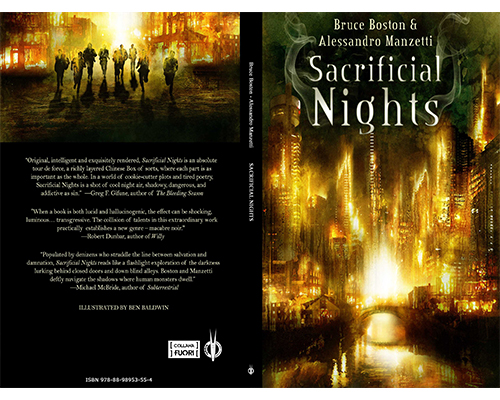 This one is especially tricky due to all of the genres involved: poetry, fiction, experimental, supernatural, natural, mystery, horror.
This one is especially tricky due to all of the genres involved: poetry, fiction, experimental, supernatural, natural, mystery, horror.For instance, a blurb claimed this novella/collection was noir, so I kept searching for noir and being disappointed that is wasn't there--as might other readers. Not only are proper labels useful but they are also critical to avoid aggravating readers that they damn works through no fault of the author.
Who will be interested?
As far as poetry, those who read primarily for mood or tone will be delighted. As for fiction, we have multiple story threads with dark bodings bordering the land that lies between horror and mystery--although the supernatural bent is more hinted at. The threads are too tenuous to build characters, but they do intrigue in how they weave together, so those who love strangely assembled narratives--think along the lines of Theodore Sturgeon's Some of Your Blood--may also fall for this one.
The book is lavishly illustrated (by Ben Baldwin) and is its own wonder. If you admire the combination of art and moody words, look no further.
If you are seeking Bruce Boston's more thoughtful verse, this probably is not the droid you're looking for. This is my first book for Manzetti, so I have nothing to compare.
But it does have art. Two ubiquitous motifs are rain and fire. They are tiresome until you realize they have been cultivated for the opposite reason they are normally employed:
"Watching the pendulum of the wipers on the rain-spotted glass, she prays silently for rain and more rain, a rain to end all rains, one that could wash her mind clean of the cold white darkness that infests it like disease." --from "Rose and the White Stalker"It takes a few readings to glom on to this reversal. It is the rain--or at least the waters it leaves behind--that allows disease to fester. It is not until the extended conflagration scenes that baptism by fire occurs.
"Rose and the White Stalker" is probably where my interest was first piqued by the individual poems. A woman, Rose, kidnapped--but nothing happens to her, which is both a momentary relief and curious. All's well that ends well, right? Her story doesn't end here.
More fascinating is Eva in "Cannibal at Large" who follows Harry, despite knowing he has consumed her father and mother. The narrative returns to her and Harry at the end, with a surprising twist. These may be my favorite characters of this circuitous narrative.
Of interest, as well, is "The Xacto Killer: Interior Monologue," which details how a serial killer might decide to up his game.
Other characters include Jean-Paul, a painter; Sandoval, a detective on the trail of the Xacto Killer; and Eugene who begins the fire at the whore house. The narrative picks up again with Eugene final act--an act which ties up (mostly) the dangling loose ends.
This collection/novella isn't for everyone, but for some, they will hug this testosterone-boosted adventure into cross-genres fiercely.
